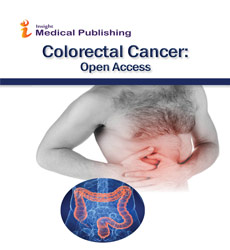Abstract
Defunctioning Stoma Reversal-does the Approach to Primary Surgery Influence the Post Operative Outcomes?
Aim: to determine whether laparoscopic approach for primary surgery carries any advantage over open approach in terms of morbidity as well as other clinical outcomes.
Methods: This is a retrospective review of a prospectively maintained database including all the patients of rectal cancer who underwent stoma reversal at Tata memorial centre between 1st June 2013 and 31st May 2015. Variables compared between the two groups were demographic characteristics, prior abdominal surgeries, time interval from stoma creation to reversal, surgical technique employed, blood loss, delay in starting oral feeding, hospital stay, perioperative morbidity and mortality.
Results: Ninety eight patients who underwent stoma reversal were included in the study. They were divided into 2 groups–those in whom the primary surgery was open and those in whom the primary surgery was laparoscopic. The two groups were comparable in all baseline characteristics except for the type of proximal defunctioning stoma and technique of stoma reversal. Laparoscopic group had lesser blood loss and fewer postoperative complications although the difference didn’t reach statistical significance. Hospital stay and oral feeding were comparable between the two groups.
Conclusions: Although stoma reversal after laparoscopic surgery leads to lower blood loss and fewer complications, it doesn’t transform into shorter hospital stay. Larger prospective studies are needed to favour one approach over the other.
Author(s):
Rahul Bhamre, Vishwas D Pai, Avanish P Saklani
Abstract | Full-Text | PDF
Share this

Google scholar citation report
Citations : 92
Colorectal Cancer: Open Access received 92 citations as per google scholar report
Abstracted/Indexed in
- Google Scholar
- JournalTOCs
- China National Knowledge Infrastructure (CNKI)
- Directory of Research Journal Indexing (DRJI)
- WorldCat
- Publons
- International Committee of Medical Journal Editors (ICMJE)
- Secret Search Engine Labs
Open Access Journals
- Aquaculture & Veterinary Science
- Chemistry & Chemical Sciences
- Clinical Sciences
- Engineering
- General Science
- Genetics & Molecular Biology
- Health Care & Nursing
- Immunology & Microbiology
- Materials Science
- Mathematics & Physics
- Medical Sciences
- Neurology & Psychiatry
- Oncology & Cancer Science
- Pharmaceutical Sciences

